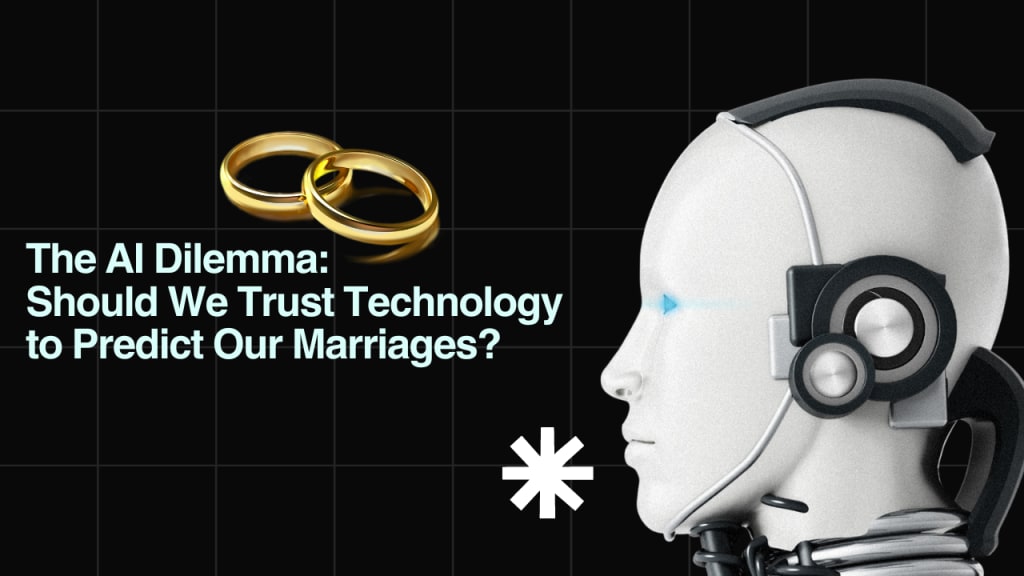Should We Trust Technology to Predict Our Marriages?
AI Dilemma

You and your partner have been in a strong, loving relationship for years, and lately, you've been thinking about getting engaged. Your partner is really excited about the idea, but you can’t stop worrying about the statistics. You know that many marriages end in divorce, often not on good terms. More than 10% of first marriages end in divorce within the first five years. If your marriage wouldn't even last five years, you feel like getting married would be a mistake.
However, you live in the near future, where a new company has developed an AI-based model that can predict your likelihood of divorce. This model uses data from social media activity, online search histories, spending habits, and past marriage and divorce histories. It claims to predict if a couple will divorce within the first five years of marriage with 95% accuracy. The only downside is that the model doesn’t explain its results; it simply predicts whether you will or won’t divorce without giving any reasons.
So, should you decide whether or not to get married based on this AI’s prediction? Imagine the model predicts that you and Your partner would divorce within five years of getting married. At this point, you have three choices. You could get married anyway and hope the prediction is wrong. You could break up now, even though there’s no way to know if ending your currently happy relationship would cause more harm than letting the prediction play out. Or, you could stay together but remain unmarried, on the off chance that marriage itself would be the issue. Without understanding the reasons for your predicted divorce, you’d never know if those mystery problems would still emerge and ruin your relationship.
The uncertainty in all these options comes from a common issue with AI around explain ability and transparency. This problem affects many useful predictive models, such as those predicting which bank customers are likely to repay a loan, or which prisoners are likely to reoffend if granted parole. Without knowing why AI systems make their decisions, many worry we can’t think critically about how to follow their advice.
But the transparency problem doesn’t just stop us from understanding these models; it also affects the user’s accountability. For instance, if the AI's prediction led you to break up with Your partner, how could you reasonably explain this to them? Saying you want to end your happy relationship because some mysterious machine predicted its end hardly seems fair to Your partner. We don’t always owe people an explanation for our actions, but when we do, AI’s lack of transparency can create challenging ethical situations. Accountability is just one of the trade-offs we make by outsourcing important decisions to AI.
If you’re comfortable relying on an AI model, it’s probably because you trust its accuracy. In this mindset, it doesn’t really matter why you and Your partner might break up—just that you likely will. But if you value authenticity over accuracy, you’ll need to understand and appreciate the reasons for your future divorce before ending things today. Authentic decision-making like this is essential for maintaining accountability, and it might be your best chance to prove the prediction wrong. On the other hand, it’s possible the model has already accounted for your attempts to defy it, and you’re just setting yourself up for failure.
95% accuracy is high, but it’s not perfect—that figure means 1 in 20 couples will receive a false prediction. As more people use this service, the chance increases that someone who was predicted to divorce will do so just because the AI predicted they would. If that happens to enough newlyweds, the AI's success rate could be artificially maintained or even increased by these self-fulfilling predictions.
Of course, no matter what the AI might tell you, whether you even ask for its prediction is still up to you.
About the Creator
Enjoyed the story? Support the Creator.
Subscribe for free to receive all their stories in your feed. You could also pledge your support or give them a one-off tip, letting them know you appreciate their work.





Comments
There are no comments for this story
Be the first to respond and start the conversation.